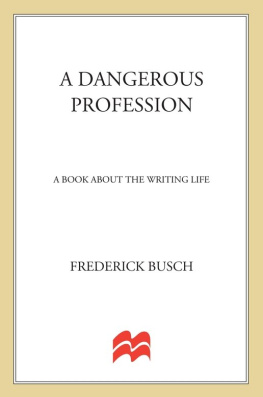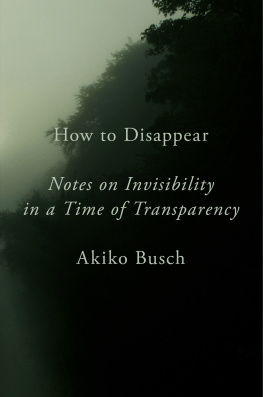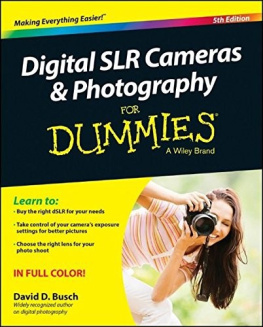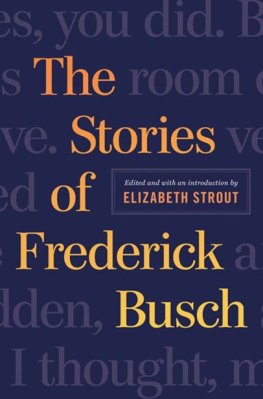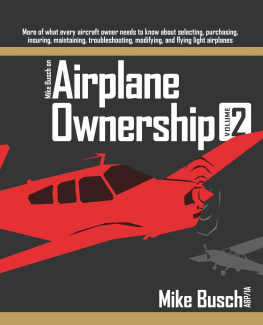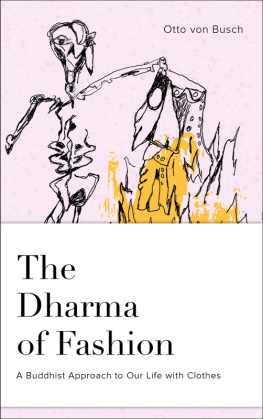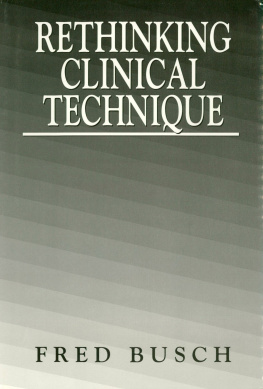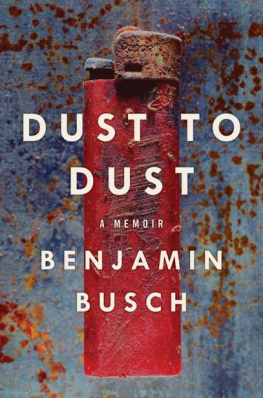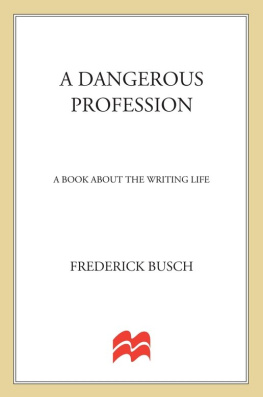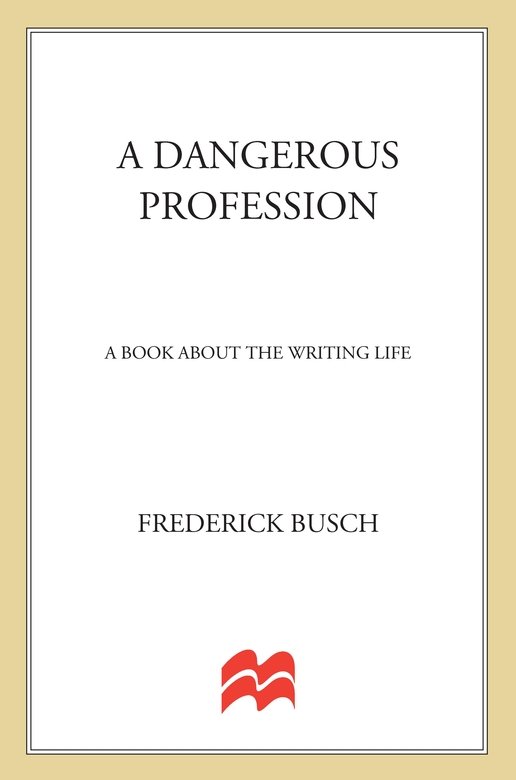F REDERICK BUSCH is the author of twenty-one books, among them The Mutual Friend, Harry and Catherine, Closing Arguments, The Children in the Woods , and Girls . He is the Edgar Fairchild Professor of Literature at Colgate University. He and his wife, Judy, the parents of two grown sons, live in upstate New York.
T HE MAPS IN the 1945 West Publishing Company pocket diary that my father carried in the war are gathered at the end of the little leather book. My father was very much a man of maps. During World War II, as a sergeant in the Tenth Mountain Division, an elite outfit trained and equipped for combat in snow and ice, on mountainous terrain, he was a scout. Carrying a radio and a carbine, he moved in advance of the infantry and artillery, calling howitzer and mortar fire down onto map coordinates that were often perilously close to his own position. He spoke infrequently of his war, but whenever he did, I asked him if he had been frightened. I found so much to be afraid of in quotidian adventures that I thought of his war as a time of always fighting fearfulness. Each time I asked, he said that he had been entirely certain that he could never be killed. According to him, he volunteered for service in the Tenth. Accordingto him, he lied about his nearsightedness by memorizing the eye chart. According to my mother, he left for the war when he could have stayed with her and me. I had learned of others lying about their eyesight in films starring such men as William Bendix, Lloyd Nolan, and John Wayne; men memorized the eye charts because it was the right and morally true action, and because vision was not only about what a nearsighted man like my father could not see: he, and those heroes, the movies said, could see . I was reminded of my fathers volunteering as I labored to keep from serving in Vietnam. I did not want to suffer at the hands of yahoos in the basic training that might kill me before any combat did. I did not want to leave my wife of so few months. I did not, finally, want to kill Asian people, any more than I thought they ought to be killing me; everything about that war was wrong, I thought (and think). And I am not imagining my fathers disappointment at my despair over passing my first draftboard physical. I think he wanted me to want to go. I think he thought I might become a man, perhaps something closer to his idea of what men were, if I learned to enjoy, as he apparently had, overcoming the rigors of boot camp and fending off the rednecks who were puzzled or angered by Jews. He had invited them into the boxing ring, he told me, and they willingly went. He was in his thirties then, older than most of the men he called boys, and, he told me, After a round or two, when they tasted their own blood, they got more friendly.
When I was a sullen kid, he offered to teach me to box. In the cement-floored basement with its big, noisy oil burnerI had played in the coal bins near the old coal-burning furnace in the fortieshe laced us in and offered instruction in the rudiments. He didnt draw blood. But he liked it (I could see that in his clenched teeth, the half smile: a simulated but possibly felt ferocity) as he pawed me with his jab and slapped me again and again with the open glove. I am not certain what the lessonwas, but I knew as he nicely enough toyed with me, teaching me technique I would forget, that he was teaching me something else: I am always holding back what you think you almost see. It is in me. It is always almost here. Or maybe I am thinking of what I thought and felt when I was the father of teenaged sons.
He carried the pocket diary with him through his year of combat, 1945. Its publishers offered information one wouldnt need today. There is, in one table, a chart of mail time to foreign places from New York: thirteen days to Belgrade, Yugoslavia, and eighteen days to Leningrad, Russia. The price charts are as out-of-date as the mapsten cents is the surcharge given for special-delivery mail weighing up to two pounds. A couple of pages in the back of the book have been torn away. I wonder when he did that, and what he sought to hide. It was his book, after all, and it was unlikely that anyone in his house or his office in Manhattan would search his wartime diary for cluesalthough that is precisely what I have done fifty years later. But he might have known more than most of us about hiding information, or about digging it out. And he might have had something to hide.
It seems entirely likely that he tore out the pages when he was preparing to die. I suspect that he did so in the 1970s, given his claim that he had been unfrightened of death. However, I find a note about V-J Day written in his hand. He knew that his outfit was to participate in the invasion of Japan, and he writes, To be assured of the end of warthe end of the dread of death. He might have felt differently about fighting in Asia. Or maybe he was a secret from himself. He didnt dread death, and he also did, perhaps, and perhaps each secret side of himself did not know the other. He feared to die and knew he wouldnt be killed. But he almost washe was blown up pretty badlyand it is possible that he was telling a lie he needed to tell and to hear. He lived, I think, in compartmentslike the watertight compartments of submarines, like the cells of spy groups or thepartisan cells of World War II. If one compartment is flooded by some of the billion tons of water outside, the rest might survive awhile. If you know only five members of your cell, you cannot tell captors or a witch-hunt committee or the FBI the names of anyone else in the underground; the damage, if you name the names, is limited to you and the other four. If you compartmentalize your nights and daysat 956 East Eighteenth Street in Brooklyn, or at the firm of Katz & Sommerich, Attorneys-at-Law, 120 Broadway in Manhattanthen all of your selves cant be caught.
He spent Christmas Eve of 1944, says his spiky, meticulous hand, on the train to Camp Patrick Henry in Norfolk, Virginia. On Wednesday, January third: Called HomeSpoke to Mom, Freddy and Phyllis. I can see him, slender and balding, with sensuous lips and dreamy blue eyes, a handsome thirty-three-year old man who had been a beautiful boy, traveling in the dim train into a dark southern night in the time of both the festival about families and about the loss of time. Once stationed at Patrick Henry, he enters Ditto, or sometimes Do, under the date of each day he spent there. And then, on January fifth, with no reference to Europe (which is unmarked by him in the map section), he writes, Train to PierEmbarkationU.S.S. General Meigs at P.M. The next day, he writes, Shipboardsailed at 12:30 PM. There is something likable about the care with which he noted times and tended to his spellings and observed the formsthat U.S.S. I wonder if the care about details was a stay against panic or whether he had concluded that a soldier kept a journal that was correct about dates and times and places and that left emotions out. I think of Hemingway, and my fathers respect for his work, and how his Frederic Henry says, in A Farewell to Arms:

